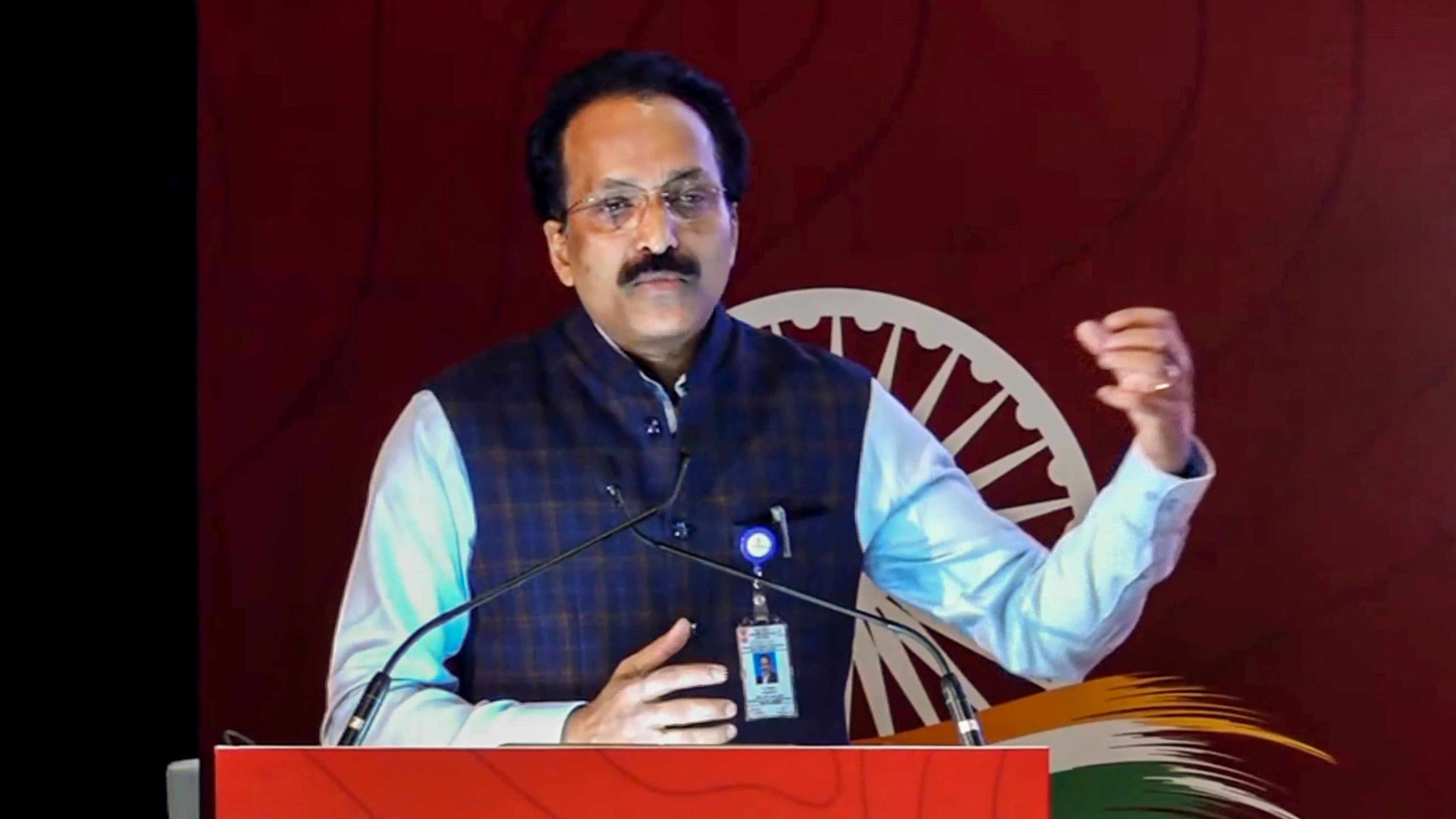
ISRO Chief S Somanath
Credit: PTI Photo
Bengaluru: ISRO Chairman S Somanath on Wednesday highlighted the need to manufacture car sensors domestically instead of relying on imports.
Speaking at a session on space technology and defence during the Bengaluru Tech Summit, which also saw the launch of the Draft Karnataka Space Tech Policy, Somanath emphasised the importance of cost-effective production.
He pointed out that while India invests significantly in producing rocket sensors, the high production cost of car sensors makes domestic manufacturing less viable.
“For car sensors, viability is achievable only if production costs are low and manufacturing is scaled up,” he said.
Somanath called for greater industry collaboration to address this challenge and noted that policy interventions like those unveiled at the summit could provide a solution.
He praised the 2020 space sector reforms and the Space Policy of 2023 for creating an ecosystem conducive to private sector growth.
“There is a lot of interest in the sector. I hear from many aspiring to build the next SpaceX in India,” he added.
Highlighting progress, Somanath mentioned that five companies are currently building satellites, with many enhancing their capacity to develop subsystems for rockets and satellites. However, he identified a lack of major players and insufficient investment in upstream space capabilities as key challenges.
“To address this, we are focusing on developing downstream capabilities, which can generate demand and eventually attract upstream investments. I believe this model will work well for the nation,” he explained.
Somanath also stressed the role of technology transfer in enabling private sector participation, saying, “Many technologies developed within ISRO are now accessible to industries for further development into products, services, or software.”
The session featured other notable speakers, including B K Das, Director General of the Defence Research Development Organisation (DRDO), and Anne Neuberger, Deputy National Security Advisor of the United States.
Priyank Kharge, Karnataka’s Minister for IT, Biotechnology, Science and Technology, and Ekroop Caur, Secretary to the Government, Department of Electronics, IT, and Biotechnology, also participated.
Kharge stated that the draft policy envisions Karnataka capturing 50 per cent of the national space market and establishing itself as a global hub for space technologies.